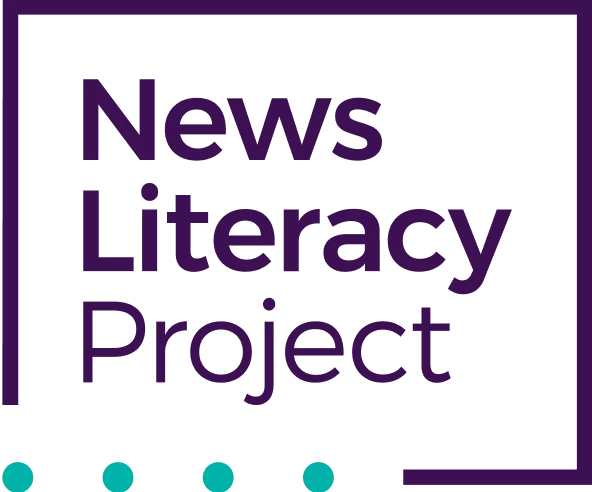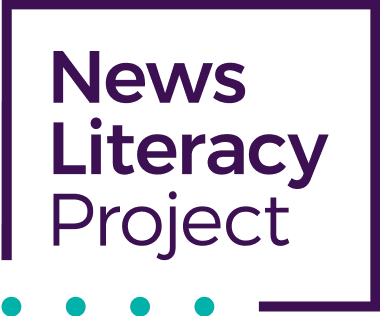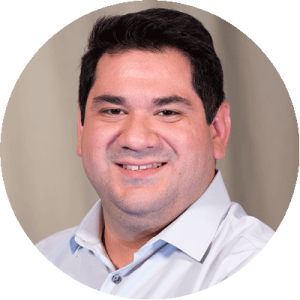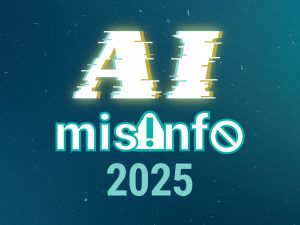Upon Reflection: 14 lessons from our first 14 years
(This is an updated and revised version of a column posted last year at this time titled “13 lessons from our first 13 years.”)
By Alan C. Miller
Today marks exactly 14 years since I founded the News Literacy Project and helped launch the field of news literacy. Our nonpartisan nonprofit is now the nation’s leading provider of this vital critical-thinking skill. Our Checkology® virtual classroom has been used by educators in all 50 states and in scores of countries around the world.
Halfway through this school year, more than 10,400 educators, who have taught as many as 780,000 students, have used NLP’s resources and participated in our programs. In addition to using Checkology, they connect to us by subscribing to The Sift®, our weekly newsletter for educators, and by attending NewsLitCamp® and other professional development programs. We have also expanded our offerings to the general public, including a mobile app, Informable®; a podcast, Is that a fact?; a weekly newsletter, Get Smart About News; and a specially designed version of Checkology. Last week, we partnered with The E.W. Scripps Company on the third annual National News Literacy Week.
I started NLP after a 29-year career as a newspaper reporter. I have seen our work become ever more vital for the health of the country’s democracy. My learning curve was steep, and the lessons were hard-earned. Here are 14 — one for each year — that are most salient.
Be mission-driven: In founding NLP, I was inspired to address a growing societal challenge that I initially recognized through the experiences of my sixth-grade daughter and her classmates. I envisioned that journalists and the standards of quality journalism could be marshaled to tackle this problem. This passion sustained me through waves of uncertainty, skepticism and unanticipated challenges.
Don’t let the doubters deter you: How can you possibly teach students to know what news and other information to trust? How will you scale this? How will you sustain it? You will never get into schools! I heard a lot of this during the early years, when I constantly had to explain what news literacy was and why it mattered. I believed that funders and educators would ultimately see this skill as essential and that we would find a way to scale it through technology.
“Report the hell out of it”: That was the admonition of my first program officer, and I took it to heart, drawing on my years as an investigative journalist. During NLP’s first year, I spoke to more than 200 nonprofit leaders, educators, journalists, academicians and prospective board members and funders. They helped provide the road map that led to the creation of NLP’s initial approach, team and curriculum.
Make educators your partners: My early hires were all educators. They included Bob Jervis, a sage social studies supervisor with whom I designed our foundational classroom program, and two people who are still with NLP more than a decade later: Peter Adams, the visionary behind all our subsequent educational resources, and Darragh Worland, a gifted digital media instructor and broadcast journalist. We told our classroom educators that we wanted them to be our partners and help us make our lessons better for their students and more useful for them. “Everyone comes in here and says this,” Gillian Smith, the then-principal of The Facing History School in New York City, one of our first two pilot schools, told me. “But you meant it.”
Build a model board: From the start, our board of directors included distinguished, ethical and visionary leaders in journalism, education and business. I told the staff that if we lived up to the ideals they personified, we would be fine. Among them are some of the most renowned journalists of our time: John Carroll, my former editor at the Los Angeles Times; Gwen Ifill of PBS; and Walt Mossberg, the now-retired iconic tech columnist and conference producer. (John and Gwen were both on NLP’s board when we all lost them much too soon in 2015 and 2016, respectively.)
Move fast and make things: A year to the day after NLP’s founding, we kicked off our classroom program in an exceptional middle school in Brooklyn, New York. Eight months later, we were in schools in Bethesda, Maryland (where I live), and Chicago as well as New York City. In 2012 we launched a rudimentary digital unit; four years later, we released a full-blown virtual classroom. Not everything we tried worked, but we learned from our failures and moved forward relentlessly by building on our proven successes.
Bake assessment into your DNA: Assessment is an integral part of our work. We measure changes in students’ knowledge, attitudes and behavior after they complete our lessons, and we gather feedback from teachers. We use the results to see what is working and what we need to change. In 2013, Debra Blum of The Chronicle of Philanthropy wrote (PDF) that this was a key to our survival despite launching in the deepest recession of our lifetime. She was right.
You don’t get if you don’t ask: Rarely has a day gone by in the past 14 years when I have not asked somebody for something. It is often, but not solely, for money. I have also asked candidates to serve on our board or advisory committees; journalists to volunteer to go into classrooms, lead virtual lessons or speak at events; educators to adopt our curriculum or make it available to their teachers; and news organizations to endorse our work, host day-long professional development programs or support National News Literacy Week. I do so knowing that I’m not asking for me; I’m asking for the mission. For those who have said yes, you have our gratitude. For those who haven’t, it’s not too late!
Never let them see you sweat: The economy cratered in September 2008, just as our first website went up and before we could even get our lessons into schools. At one point, my wife and I had to lend NLP money to make payroll. Again in 2016, we faced perilous times. Nobody wants to be the last one hired or the one to invest the last dollar, so we kept this close. By 2017, we had regained our financial footing and had even broken into popular culture as an answer on Jeopardy!. Looking back, I told the board, “It’s better to be on Jeopardy! than in jeopardy!”
“If you build it, they will come”: Creating NLP was a leap of faith for me. Creating Checkology was a leap of faith for NLP. Ready to move to national scale in 2015, we raised $250,000 and contracted with Actual Size, a branding and digital design agency. The firm partnered with our staff to build a cutting-edge, highly engaging virtual classroom. Our platform of dreams is being used nationwide in red, blue and purple states, with the aspiration for future exponential growth. Now, we just have to “go the distance.”
Be rigorously nonpartisan: Key founding board members and I brought this to NLP from our experience in journalism. The board itself is bipartisan; its current members include a former Obama administration official and a George W. Bush White House appointee. We teach students how to think, not what to think, about news and other information. We do not steer them toward, or away from, any news outlet or medium. We believe this is not only consistent with our mission, but also ensures that we can work with educators, school districts and communities across the political spectrum. This principle has become ever more vital as the country has become more and more politically polarized.
Embrace diversity and inclusion: From the start, we sought to include board members, staff and journalists of color and diverse backgrounds and to reflect this in how we presented ourselves. I saw how powerful this was the day we launched our classroom program in 2009 in a middle school in Brooklyn when Soledad O’Brien, then with CNN and on our founding board, told students about the serious challenges she faced as a pioneer in her field as a woman and a person of color. For the past 18 months, we have engaged in intensive Diversity, Equity and Inclusion training and have examined every aspect of NLP to ensure that we make these values and practices integral to who we are and what we do. As a result, we are better, stronger and more representative.
Create a circle of virtue: Perhaps nothing has been more gratifying than seeing the expansion of a diverse and ever-widening circle of those drawn to our mission: Accomplished and engaged members of our board and National Leadership Council. Talented and committed staffers. Volunteer journalists and front-line educators. Generous donors who make our work possible. High-powered partners who help us expand our reach. Our growth continues to be fueled by new participants, partners and patrons.
Seize the moment: The rise of conspiratorial thinking around groups like QAnon, the pandemic and the 2020 election has raised the stakes for the country’s public health as well as its public life. We have responded by seeking to turn our mission into a national movement. We want to play a leading role in creating a sea change in how people consume and share news and other information through a heightened sense of personal responsibility. We aspire to educate, empower and engage a grassroots community of upstanders for facts who push back against mis- and disinformation. Please join us today!
